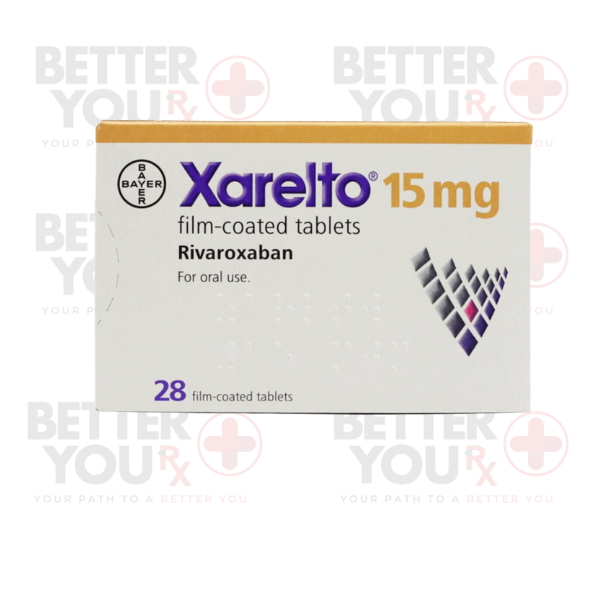| Usage |
Usage
Quinine is available in capsule form for oral consumption. Typically, it is ingested with food, taken three times daily (every 8 hours), and the treatment duration ranges from 3 to 7 days. To ensure optimal results, it's essential to take quinine at approximately the same times each day. Please adhere to the instructions on your prescription label meticulously, and seek clarification from your doctor or pharmacist regarding any unclear aspects. It is imperative to take quinine precisely as directed by your healthcare provider; avoid exceeding or reducing the dosage or taking it more frequently than prescribed. Swallow the capsules whole; do not open, chew, or crush them, as quinine possesses a bitter taste.
Patients typically experience an improvement in their condition within the initial 1-2 days of treatment. If your symptoms do not ameliorate or worsen, promptly contact your doctor. Additionally, if you develop a fever shortly after completing your treatment, this could signify a potential second episode of malaria, necessitating medical attention. It is crucial to continue taking quinine until you've finished the entire prescription, even if you start feeling better. Prematurely discontinuing quinine or missing doses may result in incomplete treatment, potentially leading to the development of antimalarial resistance in the causative organisms.
|
| Side Effects |
Side Effects
This medication has the potential to lower blood sugar levels. It's crucial to be aware of the symptoms of low blood sugar and how to respond if these symptoms manifest. Quinine may also lead to side effects. If any of these symptoms are severe or persist, please inform your doctor:
• Nausea
• Restlessness
• Difficulty hearing or experiencing ringing in the ears
• Confusion
• Nervousness
Certain side effects can be more serious. If you encounter any of the subsequent symptoms, contact your doctor immediately:
• Rash
• Hives
• Itching
• Flushing
• Hoarseness
• Difficulty breathing or swallowing
• Enlargement or puffiness in the facial area, throat, lips, eyes, hands, feet, ankles, or lower legs.
• Fever
• Blisters
• Stomach pain
• Vomiting
• Diarrhea
• Blurriness or changes in color vision
• Inability to hear or see
• Faintness
• Easy bruising
• Purple, brown, or red discolorations
• Unusual bleeding
• Blood in the urine
• Dark or tarry stools
• Nosebleeds
• Bleeding gums
• Sore throat
• Fast or irregular heartbeat
• Chest pain
• Weakness
• Sweating
• Dizziness
Quinine may induce other side effects not listed here. If you experience any unusual issues while taking this medication, do not hesitate to contact your doctor for guidance and evaluation.
|
| Storage |
Side Effects
This medication has the potential to lower blood sugar levels. It's crucial to be aware of the symptoms of low blood sugar and how to respond if these symptoms manifest. Quinine may also lead to side effects. If any of these symptoms are severe or persist, please inform your doctor:
• Nausea
• Restlessness
• Difficulty hearing or experiencing ringing in the ears
• Confusion
• Nervousness
Certain side effects can be more serious. If you encounter any of the subsequent symptoms, contact your doctor immediately:
• Rash
• Hives
• Itching
• Flushing
• Hoarseness
• Difficulty breathing or swallowing
• Enlargement or puffiness in the facial area, throat, lips, eyes, hands, feet, ankles, or lower legs.
• Fever
• Blisters
• Stomach pain
• Vomiting
• Diarrhea
• Blurriness or changes in color vision
• Inability to hear or see
• Faintness
• Easy bruising
• Purple, brown, or red discolorations
• Unusual bleeding
• Blood in the urine
• Dark or tarry stools
• Nosebleeds
• Bleeding gums
• Sore throat
• Fast or irregular heartbeat
• Chest pain
• Weakness
• Sweating
• Dizziness
Quinine may induce other side effects not listed here. If you experience any unusual issues while taking this medication, do not hesitate to contact your doctor for guidance and evaluation.
|
| Precaution |
Precaution
Before using quinine, it's essential to follow these guidelines:
1. Inform your doctor and pharmacist if you are allergic to quinine, quinidine, mefloquine, or any components in quinine capsules. Request a list of ingredients from your healthcare provider.
2. Share a comprehensive list of all prescription and nonprescription medications, vitamins, nutritional supplements, and herbal products you are currently taking or plan to take. Some medications may interact with quinine, including those for diabetes, high blood pressure, irregular heartbeat, seizures, ulcers, and more. Be sure to include any medicines not listed.
3. Do not take antacids containing magnesium or aluminum (such as Alternagel, Amphogel, Alu-cap, Alu-tab, Basaljel, Gaviscon, Maalox, Milk of Magnesia, or Mylanta) simultaneously with quinine. Consult your doctor or pharmacist regarding the time gap between taking these antacids and quinine.
4. Disclose any personal or family history of prolonged QT interval (a rare heart problem that can lead to fainting or irregular heartbeat), abnormal electrocardiogram (ECG), G-6-PD deficiency (an inherited blood disease), myasthenia gravis (a condition causing muscle weakness), or optic neuritis (optic nerve inflammation leading to sudden vision changes). If you've experienced a significant reaction or bleeding problems after previous quinine use, inform your doctor.
5. Report any history of slow or irregular heartbeat, low blood potassium levels, or heart, kidney, or liver disease.
6. If you are pregnant, planning pregnancy, or breastfeeding, discuss this with your doctor. Contact your doctor if you become pregnant while taking quinine.
7. If you have an upcoming surgery, including dental procedures, inform the healthcare provider or dentist about your quinine use.
8. If you use tobacco products, be aware that cigarette smoking may reduce the effectiveness of quinine.
Adhering to these precautions will help ensure the safe and effective use of quinine for your specific condition. Always follow your healthcare provider's guidance regarding medication usage.
|
| Warnings |
Warnings
Quinine should not be employed for the treatment or prevention of nighttime leg cramps. It has not demonstrated effectiveness for this purpose and may potentially induce severe or life-threatening side effects, such as significant bleeding issues, kidney damage, irregular heartbeat, and severe allergic reactions.
|










Reviews
There are no reviews yet.